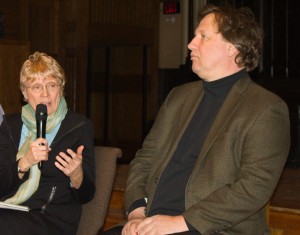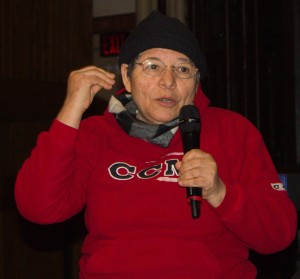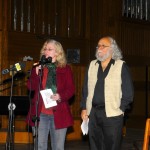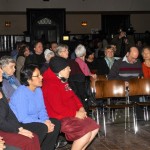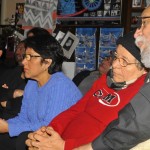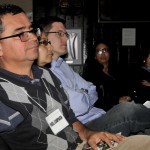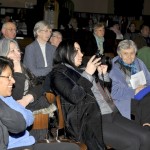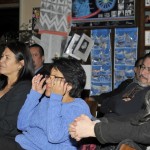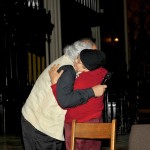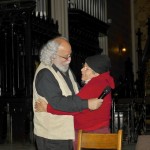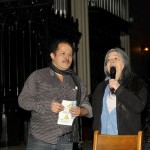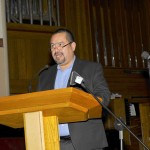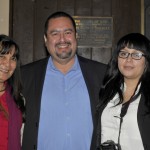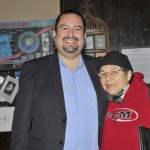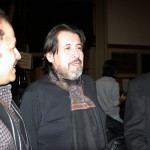- Oscar Vigil, at the launching act of the Vigil Campaign
- Over 100 people joined us at the The Holy Trinity Church, in Toronto
- Signing the petition
- Signing the petition
- Signing the petition
- Signing the petition
- Signing the petition
- Everyone helped
- Stephen Foster (left) explained the legal aspects of the case
- Oscar Vigil and Francisco Rico
- Francisco Rico and Michelle Millard
- Loli Rico
- Pupusas and other great Salvadorian food
- Pupusas and other great Salvadorian food
- Pupusas and other great Salvadorian food
- Pupusas and other great Salvadorian food
- Pupusas and other great Salvadorian food
- Alfredo Barahona
- John Carlaw, Geraldine Sadoway and Stephen Foster
- The support of the Dominican community
- Maria Ofelia Navarrete, Deputy Minister of the Interior of El Salvador
- Maria Ofelia Navarrete, Deputy Minister of the Interior of El Salvador, and Francisco Rico
- Maria Ofelia Navarrete, Deputy Minister of the Interior of El Salvador
- Fundraising
By Rebeka Lauks
On March 24th, 2014, Francisco Rico-Martinez of the FCJ Refugee Centre and Michelle Millard of York University welcomed over 100 individuals to the official launch of the Vigil Campaign at the Church of the Holy Trinity. The Vigil Campaign has come together in support of Oscar Vigil, a loving husband, caring father, and valued member of the community.
Oscar and his family came to Canada in 2001 seeking refugee protection. While his wife and three children have all now received Canadian citizenship, Oscar has spent the last 13 years in legal status limbo and is now being threatened with deportation back to El Salvador. It is for this reason that the Vigil Campaign is presently mobilizing to increase public support for his case and to pressure the Minister to grant relief to Oscar so that he may remain in Canada with his family.
Over the course of the evening, the audience was treated not only to delicious Salvadorian pupusas and a moving performance from Alfredo Barahona, but to a series of speakers who explained the issue of the unjust application of “inadmissibility” in the refugee context, with Oscar presenting the perfect example of a failing system.
“For everyone that suffers injustice”
John Carlaw, a doctoral student at York University and valued member of the Vigil Campaign, introduced the campaign, explaining to the audience that “this campaign is not being launched only for Oscar, but also for everyone that suffers injustice because of inadmissibility situations.”
Mr. Carlaw described how Oscar Vigil first became involved with the previous El Salvadorian opposition party, the FMLN, when he was only in grade 9, as many young El Salvadorians of principle were doing at the time in the face of government-led human rights atrocities. He explained that Oscar and his wife Carolina came to be prominent journalists and critics of the government, and for that, they received numerous threats to their lives. When they came to Canada in 2001, Oscar was open and honest about his opposition activity with the FLMN. Unfortunately, in complete ignorance of the political context in which the FMLN and its supporters formed, Canada deemed the FMLN, now the elected majority party of El Salvador, to be a terrorist organization and as such, Oscar was found inadmissible. Mr. Carlaw explained to the audience that to remove the struggle from the political context in this way ignores international law and common sense, and is a human rights concern of the highest order.
The primary purpose for excluding someone from Canada, Mr. Carlaw said, is an evaluation that the individual either does not need protection or that Canada must be protected from that individual. However, as Mr. Carlaw pointed out, neither of these apply to Oscar’s situation. In fact, the 2012 CBSA report found that Oscar does face a risk if returned to El Salvador and that he does not pose a threat to Canada whatsoever. How can it be that now in 2014 he is once more inadmissible?
Mr. Carlaw then outlined Oscar’s numerous accomplishments since coming to Canada, including his role as a very involved and loving family man, his work as the Executive Director of the Canadian Hispanic Congress, and his involvement with numerous other organizations including a mentoring program for recent Hispanic Immigrants, the Canadian Centre for International Justice, and Partners in Motion. Mr. Carlaw concluded by re-stating that Oscar deserves to be commended, not punished, and that we should all feel honoured that he chose Canada as his country of refuge.
“A clear case of abuse”
Following John Carlaw’s introduction was an explanation of the legal aspects of Oscar Vigil’s case from Stephen Foster. He explained that what is happening to Oscar is a “clear case of abuse” from the Canadian government. The first abuse from the government came when the Minister’s Delegate overturned the CBSA officer’s 2012 positive assessment and recommendation that Oscar be put on the path to permanent residence. The 2012 assessment was based on extensive research on the part of the officer, who found that Oscar had no direct participation with combat or violence during his time with the FMLN and that he does not constitute a danger to Canada. The Minister’s Delegate had no grounds on which to overturn this decision and decide instead that Oscar should be removed from Canada.
The second abuse from the government came when Oscar’s Humanitarian and Compassionate grounds application was refused. This application asked the government to grant relief despite his inadmissibility on the compassionate grounds that he has now spent 13 years in Canada, he has become a leader in his community, and his wife and children are all Canadian citizens who deserve to have Oscar with them. The 2014 refusal did not address any of the above-mentioned compassionate grounds.
Oscar currently has one last application in the works: an application for Ministerial relief. He has not received a decision on this application yet, and it is for this very reason that the Vigil Campaign is mobilizing now – to gain public support so that Oscar will not be subjected once again to an abuse from the Canadian government. As Mr. Rico-Martinez pointed out, “we are here because we are politically involved, because we care about human rights. We have to stop this.”
The legal and political case
Stephen Foster was then joined again by Mr. Rico-Martinez, Mr. Carlaw, and veteran refugee lawyer Geraldine Sadoway, to take questions from the audience regarding the legal and political case. Ms. Sadoway explained to the audience that the Geneva Convention and international law do in fact allow for exclusion, but not in the way that Canada has applied it in Oscar’s case. Moreover, she stated that had Oscar come to Canada for the first time today, he likely would not have been found inadmissible in the wake of the recent case Ezokola, where the Supreme Court of Canada found that we cannot hold individuals liable for crimes committed by a group simply because they are loosely affiliated with the group.
The panel then appealed to the audience by explaining that although the campaign is already talking to numerous Members of Parliament across party lines, including Andrew Cash, Ted Opitz, and Mark Adler, this route can only lead to results if there is a strong public outcry in support of Oscar.
“A political and ideological problem”
Following the legal discussion, the audience was treated to a rousing speech from Maria Ofelia Navarrete, Deputy Minister of the Interior of El Salvador. Ms. Navarrete expressed how proud she was of Oscar for his honesty throughout the Canadian immigration process. She noted that one of the core principles when seeking asylum is not to lie – Oscar was honest and should be commended for telling the truth to the Canadian people about the ongoing struggle in El Salvador. In her role as a member of the El Salvadorian government, Ms. Navarrete promised to make gestures to the Canadian government in order to effect change, and she encouraged the audience to do the same. As she so aptly put it, “this is not a legal problem. It is a political and ideological problem. You cannot sit and wait for an answer. You have to go and look for it.”
The evening closed off with a few words of gratitude from Oscar Vigil. His eloquent words of thanks were only further proof of Mr. Carlaw’s earlier statement that Oscar is “not a threat but an asset to our community,” and that this is not limited to Oscar but to all refugee claimants who face the unjust application of inadmissibility to Canada, and from whom, as Ms. Sadoway stated, Canada has so much to learn.
It is fitting that this group would gather in the Church of the Holy Trinity on March 24th, the anniversary of El Salvadorian Archbishop Oscar Romero’s 1980 assassination, and as Mr. Rico Martinez pointed out, the UN proclaimed “International Day for the Right to the Truth concerning Gross Human Rights Violations and for the Dignity of Victims.” The anniversary of the Archbishop was a common theme throughout the evening and all speakers agreed that what is happening to Oscar Vigil is a slippery slope. Much like the Archbishop before him, Oscar Vigil is a man of principle who did nothing wrong but follow his conscience to oppose massive government-led human rights abuses. He is a family-man and a pillar of the Canadian Hispanic community – a man who, as Ms. Sadoway pointed out, has been deemed inadmissible for the very same reasons that Nelson Mandela was given honorary citizenship. If this can happen to a man like Oscar Vigil, then who is next?



















































